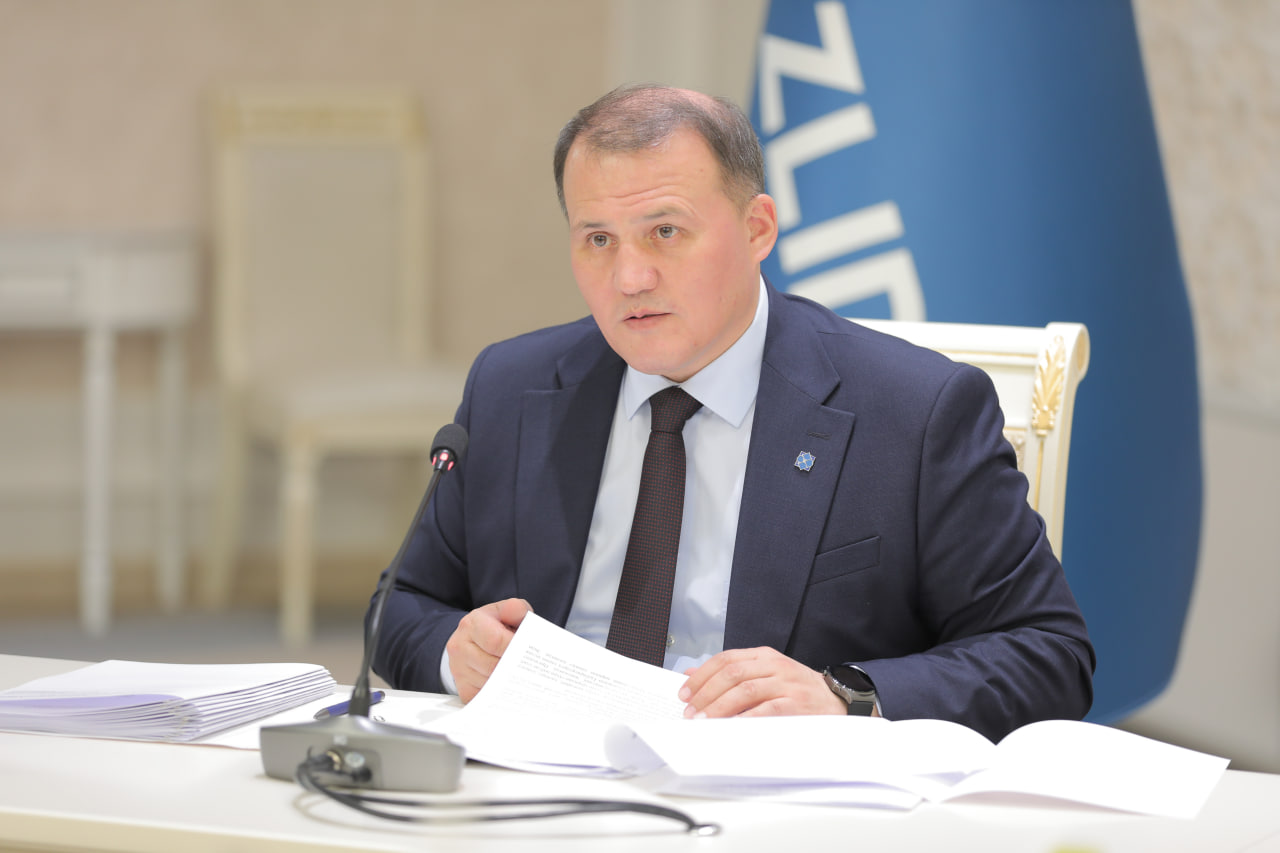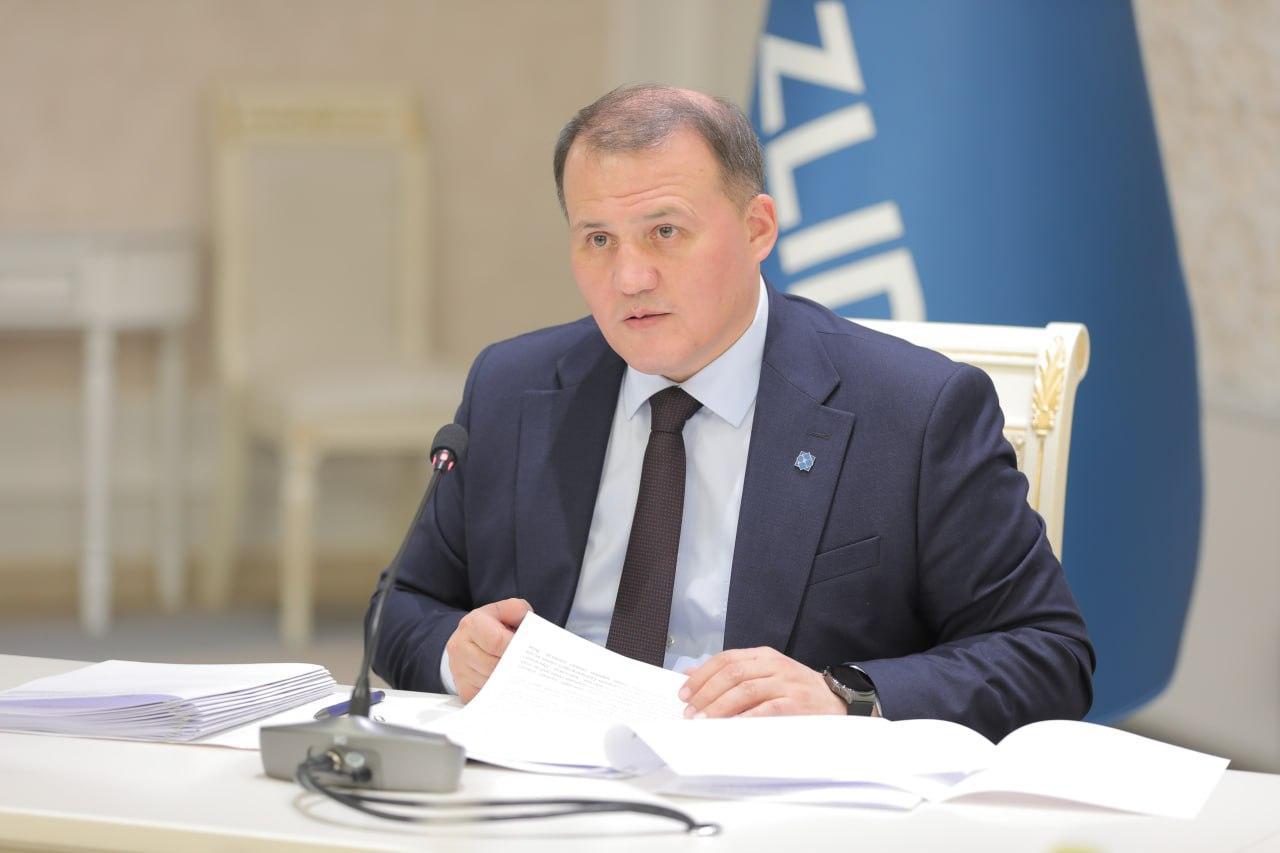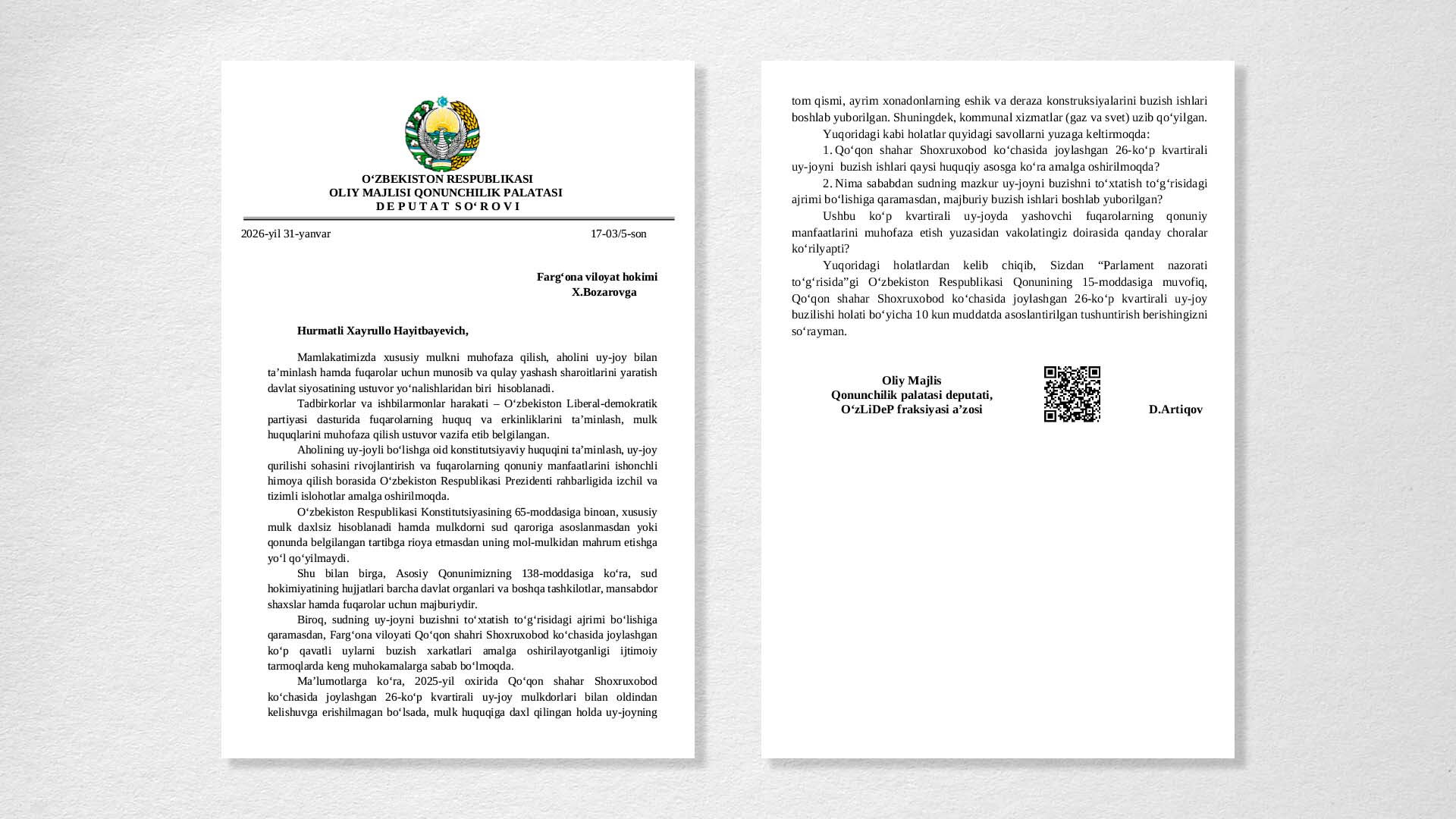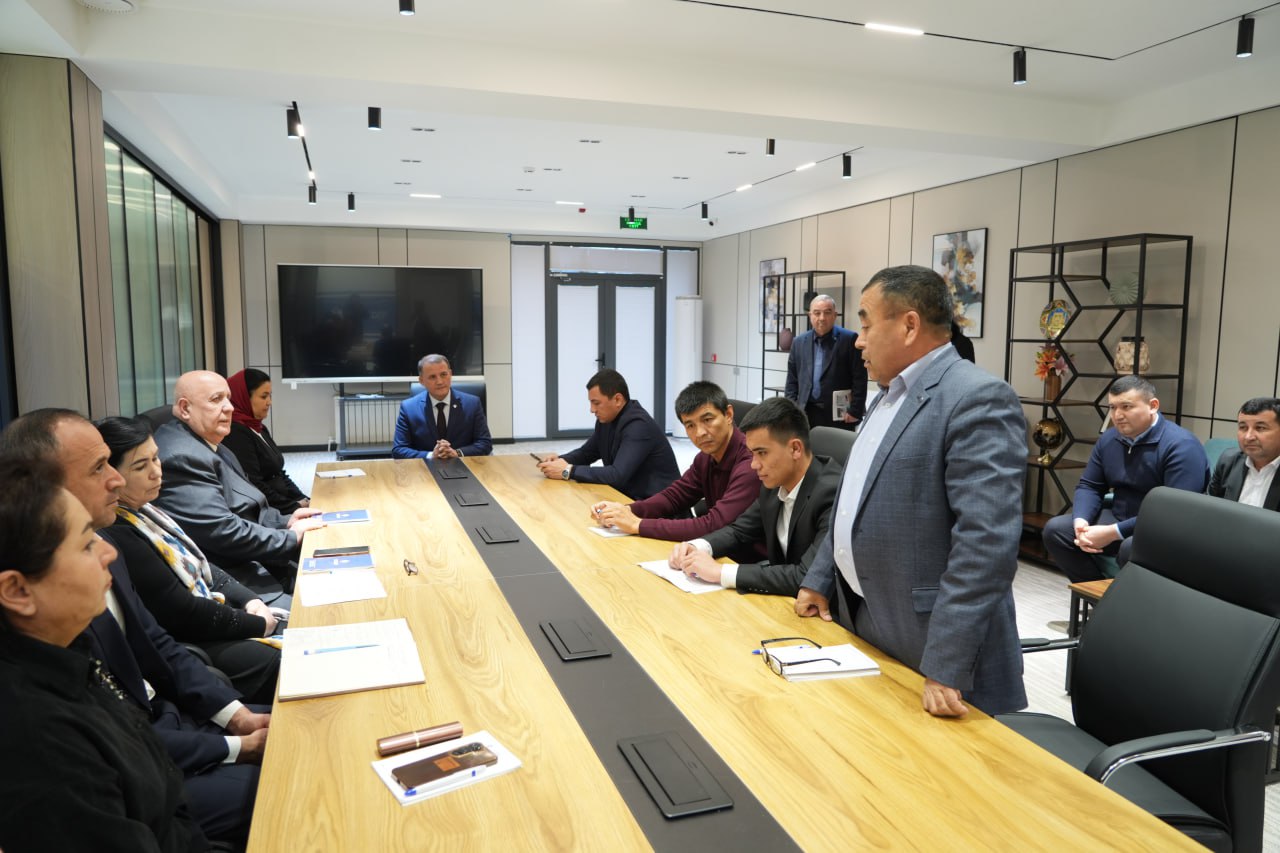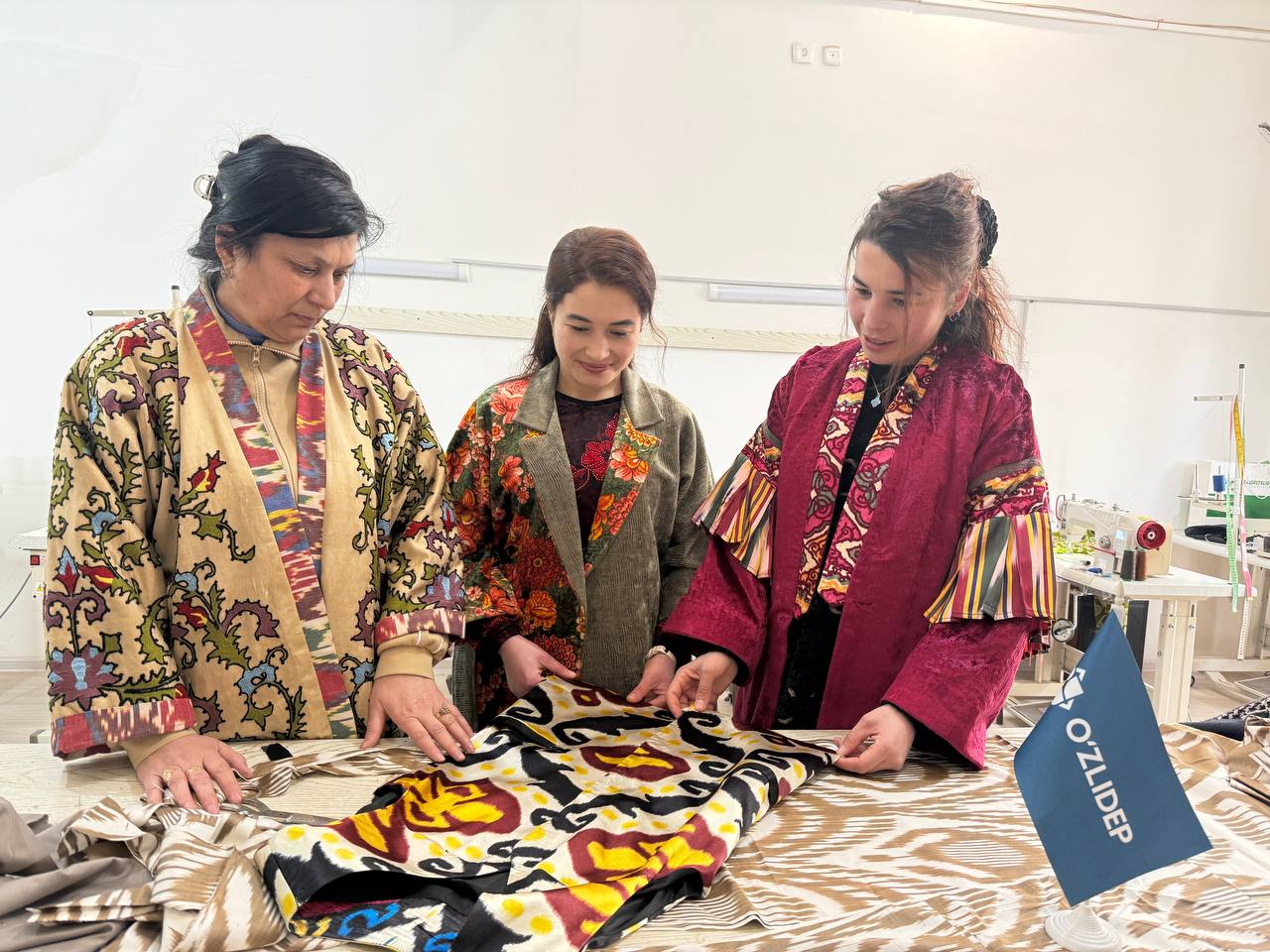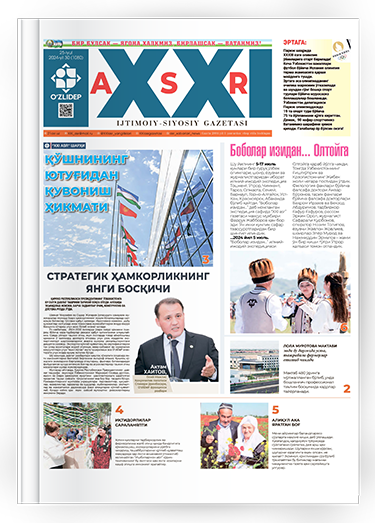O‘zbekiston va Ozarbayjon: Strategik birodarlik mustahkamlanmoqda
Tez o‘zgarayotgan geosiyosiy vaziyat va mintaqaviy birdamlikka ehtiyoj ortib borayotgan bir paytda, O‘zbekiston va Ozarbayjon o‘rtasidagi strategik sheriklik tobora mustahkamlanib, mazmunan yanada boyib bormoqda. Ikkala davlat hamkorlikni o‘zaro hurmat, pragmatizm va qardosh xalqlarning birligi asosiga qurish mumkinligini amalda namoyon etmoqda. Bundan tashqari, ular mintaqaviy barqarorlik, ochiqlik va tinchlikka yo‘naltirilgan hamkorlikning yorqin namunalaridan biriga aylangan.
2025-yil 2-iyul kuni Bokudagi “Zagulba” qarorgohida bo‘lib o‘tgan Oliy davlatlararo kengashning ikkinchi yig‘ilishi O‘zbekiston va Ozarbayjon o‘rtasidagi munosabatlarning yangi bosqichini boshlab berdi. Prezidentimiz Shavkat Mirziyoyevning Ozarbayjonga davlat tashrifi o‘zaro ishonch va strategik ko‘mak ramzi bo‘ldi.
Davlatimiz rahbari tashrif va Kengash yig‘ilishi ikki davlat o‘rtasida diplomatik aloqalar o‘rnatilganining 30 yilligi doirasida o‘tkazilayotganini alohida ta’kidladi. Bu voqea nafaqat ramziy, balki amaliy ahamiyatga ham ega. Toshkent va Boku o‘rtasida siyosiy, iqtisodiy, gumanitar va transport sohalarida misli ko‘rilmagan darajadagi yaqinlik shakllandi. Prezidentimiz ta’kidlaganidek, “hech qachon tarixda bizning munosabatlarimiz bugungidek yuksak darajada bo‘lmagan”. Bu so‘zlarni ko‘plab fakt va natijalar tasdiqlaydi.
Birinchidan, O‘zbekiston va Ozarbayjon umumiy maqsad va qarashlarga ega. Ikkala xalqni tarix, o‘xshash qadriyatlar, til va madaniyat birlashtirib turadi, bu esa doim birodarlik va o‘zaro ishonch asosini mustahkamlab kelgan.
Ikkinchidan, siyosiy ishonch doimiy davlatlararo aloqalar orqali mustahkamlanmoqda. So‘nggi oylar davomida Xivada ilk parlamentlararo forum, Andijonda rektorlar forumi o‘tkazilib, 60 dan ortiq kelishuvlar imzolandi, hukumatlararo komissiya va Boku shahrida hududlar forumi bo‘lib o‘tdi. Bularning barchasi hamkorlik jarayonlariga markaziy hokimiyatdan tortib, hududlar va universitetlargacha turli darajalarning jalb etilganligini ko‘rsatadi.
Uchinchidan, iqtisodiy kun tartibi yig‘ilishning asosiy mavzusiga aylandi. 2025-yil ikki davlat munosabatlarida Iqtisodiy hamkorlik yili, deb e’lon qilindi. O‘tgan yilda O‘zbekiston va Ozarbayjon o‘rtasidagi savdo hajmi 25 foizga oshdi. Hozirda Ozarbayjonda O‘zbekiston kapitali ishtirokida 300 ga yaqin qo‘shma korxona faoliyat yuritmoqda. Investitsiya loyihalari portfeli 4 milliard AQSH dollariga yetdi, bu esa boshlanishi xolos. Yaqin yillarda savdo va investitsiyalar hajmini yiliga 1 milliard dollarga yetkazish rejalashtirilmoqda.
Yig‘ilishda sanoat, infratuzilma, qishloq xo‘jaligi, turizm, sog‘liqni saqlash va moliya sohalarini qamrab olgan alohida Hamkorlik dasturi taqdim etildi. Shuningdek, qo‘shma investitsiya kompaniyasi faoliyatini faollashtirish, tadbirkorlar kengashi va sanoat-iqtisodiy zonalar forumini tashkil etish tashabbusi qo‘llab-quvvatlandi. Bu tomonlarning faqat an’anaviy savdoni emas, balki yuqori texnologiyalar, barqaror rivojlanish va qo‘shimcha qiymat zanjirlarini rivojlantirishga sodiqligini ko‘rsatadi.
Imzolangan hujjatlar orasida 2025–2026-yillarga mo‘ljallangan Sanoat kooperatsiyasi dasturi, agrosanoat majmuasi va oziq-ovqat xavfsizligini ta’minlash bo‘yicha amaliy harakatlar rejasi, 2030-yilgacha savdo hajmini 1 milliard dollarga yetkazish dasturi muhim ahamiyat kasb etdi.
Yig‘ilishdagi eng muhim yutuqlardan biri O‘zbekistonning “yashil” energiyasini Yevropaga eksport qilish bo‘yicha qo‘shma loyihani jadallashtirish bo‘yicha erishilgan kelishuv bo‘ldi. Ushbu loyiha Markaziy Osiyo va Janubiy Kavkazda keng qamrovli “yashil o‘tish” strategiyasining muhim qismiga aylanishi va butun mintaqaning energetik mustaqilligi va ekologik xavfsizligini kuchaytirishi mumkin.
Shuningdek, Transkaspiy (O‘rta) transport yo‘lagi doirasida transport aloqalarini rivojlantirish ham muhim ahamiyat kasb etadi. 2025-yil bahoridan boshlab, O‘zbekiston va Ozarbayjon yuk tashish uchun elektron ruxsatnoma tizimini joriy etdi, bu esa yuk tashish hajmini 25 foizga oshirish imkonini berdi va yiliga bir million tonnadan ortiq yuk tashishga erishildi. O‘rta transport yo‘lagi Markaziy Osiyo, Janubiy Kavkaz, Turkiya va Yevropani bog‘lovchi strategik arteriyaga aylanmoqda. Kelajakda bu yo‘nalish geosiyosiy jihatdan beqaror hududlarni chetlab o‘tgan holda Sharq va G‘arb o‘rtasidagi asosiy logistika yo‘lagi bo‘lishi mumkin.
Bundan tashqari, Kaspiy dengizida dengiz transporti va kema qurilishi sohasida hamkorlik protokoli imzolandi, bu esa dengiz logistikasini kengaytirish uchun yangi imkoniyatlar eshigini ochadi.
Gumanitar sohadagi kelishuvlar ham strategik sheriklik faqat pragmatik manfaatlargagina emas, balki barqaror va inklyuziv taraqqiyot masalalariga ham qaratilganini ko‘rsatmoqda. Atrof-muhitni muhofaza qilish, fan, kasb-hunar va oliy ta’lim sohalarida hamkorlik bo‘yicha hukumatlararo bitimlar imzolandi. 2025–2027-yillarda fuqarolarni ijtimoiy himoya qilish bo‘yicha alohida hujjatlar qabul qilindi.
Bu esa ikki davlat tomonidan BMT ilgari surgan Barqaror rivojlanish maqsadlarini amalga oshirish bo‘yicha ko‘rilayotgan chora-tadbirlarga to‘liq mos keladi. Bu orqali ijtimoiy siyosat sohasida mintaqaviy yetakchilik namunasi yaratilmoqda va mazkur jarayonda atrof-muhit, ta’lim va ijtimoiy qo‘llab-quvvatlash masalalari asosiy o‘rinda turadi.
Madaniy aloqalar ham faollashmoqda. Xususan, Ozarbayjonning “Shirvon” ansambli Xivadagi xalqaro “Baxshi” festivalida Gran-prini qo‘lga kiritdi. 2025-yil davomida yoshlar va madaniy almashinuvlar doirasida ko‘plab qo‘shma tadbirlar rejalashtirilgan, bu esa ayniqsa yubiley yilida alohida ahamiyat kasb etadi.
Bokuda “O‘zbekiston” bog‘ining qurilishi va O‘zbekiston Respublikasining yangi elchixonasi binosining ochilishi muhim ramziy qadam bo‘ldi. Bunga javoban, O‘zbekistonda “Ozarbayjon” bog‘i va “Sea Breeze” turistik majmuasi qurilishi rejalashtirilmoqda. Ushbu tashabbuslar madaniy va diplomatik ahamiyatga ega bo‘lib, birodar xalqqa hurmatni hamda ikki millatning ma’naviy yaqinligini shahar makonida mustahkamlash istagini namoyish etadi.
Xalqaro va mintaqaviy kun tartibida mamlakatlar yetakchilari o‘zaro fikr birligini hamda xalqaro maydonlarda bir-birini qo‘llab-quvvatlash niyatini yana bir bor tasdiqladilar. O‘zbekiston barcha mojarolar va keskin masalalar faqat tinchlik yo‘li bilan, diplomatiya asosida hal etilishini qat’iy qo‘llab-quvvatlaydi. Ozarbayjon ham ushbu yondashuvni qo‘llab-quvvatlashi ikki davlatning xalqaro tashkilotlar doirasidagi umumiy pozitsiyasini kuchaytiradi.
Yuqorida qayd etilgan fikrlardan xulosa qilgan holda Oliy davlatlararo kengashning ikkinchi yig‘ilishi davomida iqtisodiyotdan tortib madaniyatgacha, transportdan tortib ijtimoiy siyosatgacha bo‘lgan barcha asosiy sohalarni qamrab olgan bir qator hujjatlar paketi ko‘rib chiqilib, qabul qilinganini ta’kidlash joiz. Imzolangan “yo‘l xaritasi” qabul qilingan qarorlarni amalga oshirish uchun muhim dasturulamal bo‘lib xizmat qiladi. Ushbu qadamlar strategik sheriklikni chuqurlashtirib, barqaror taraqqiyot va farovonlikka erishish yo‘lidagi umumiy maqsadimizga zamin yaratadi.
Aktam XAITOV,
Oliy Majlis Qonunchilik palatasidagi
O‘zLiDeP fraksiyasi rahbari




